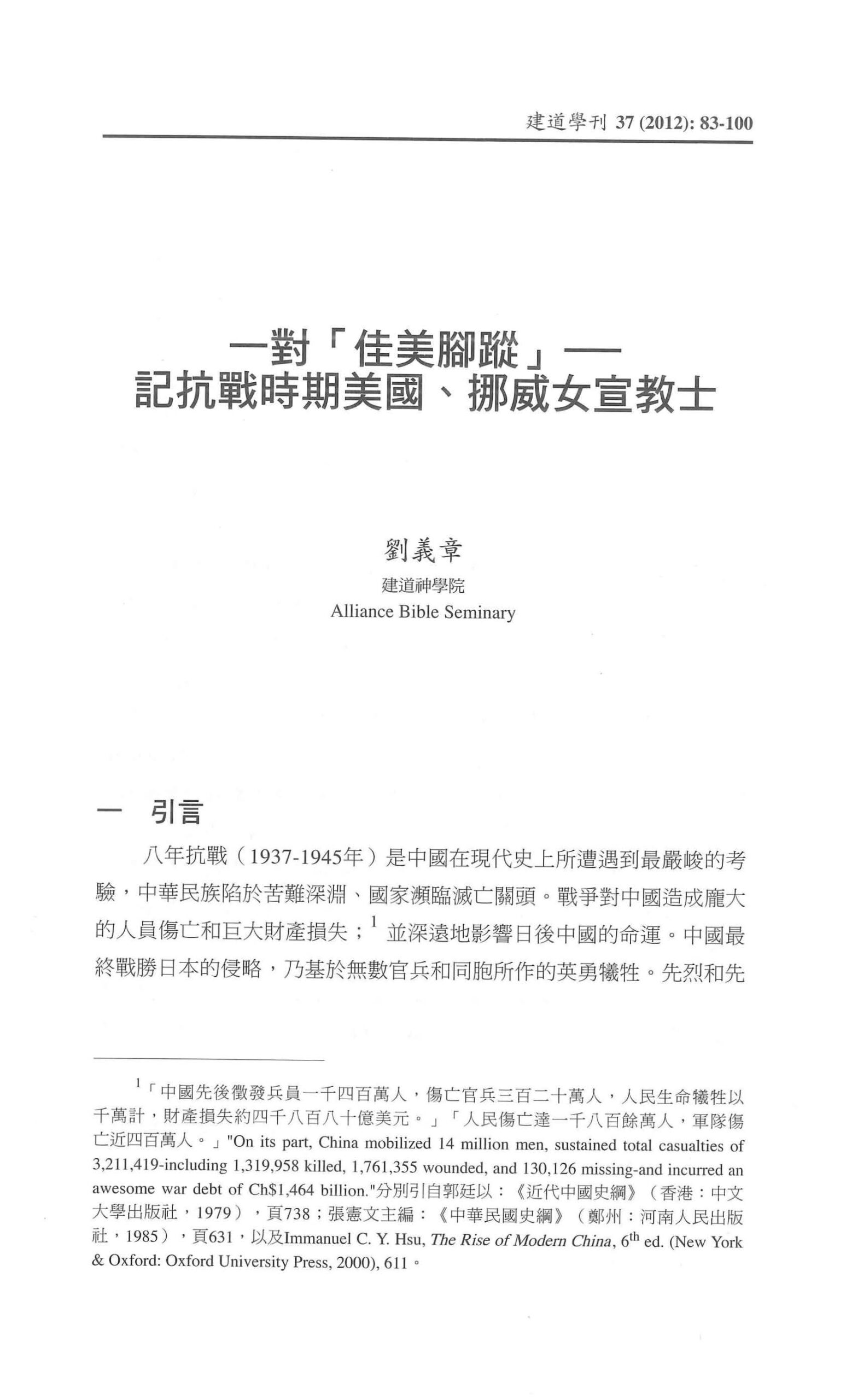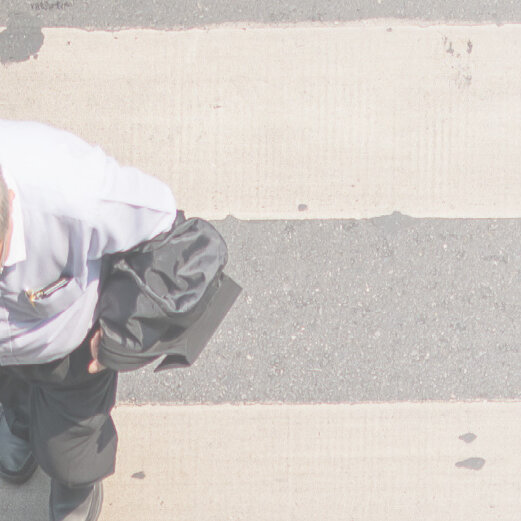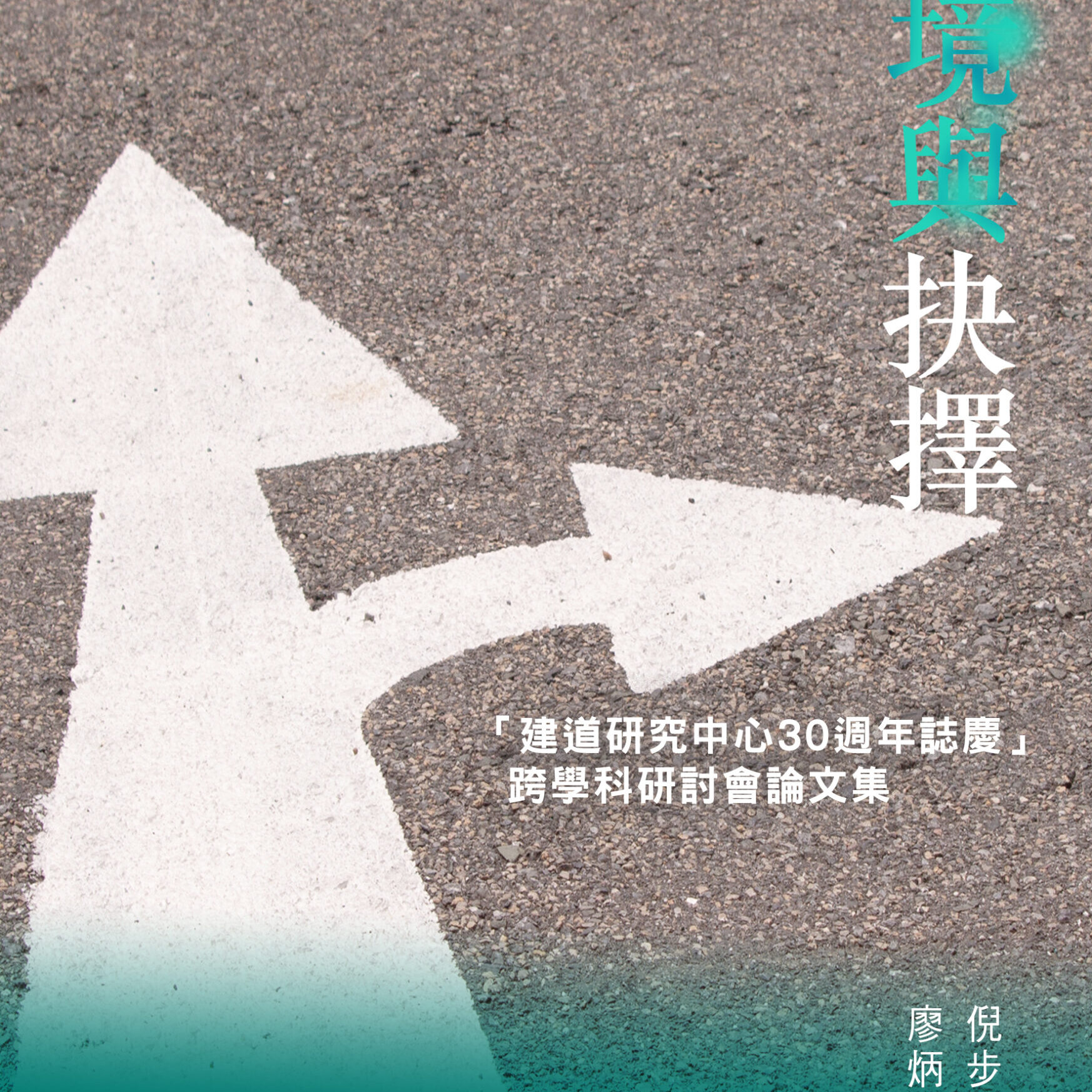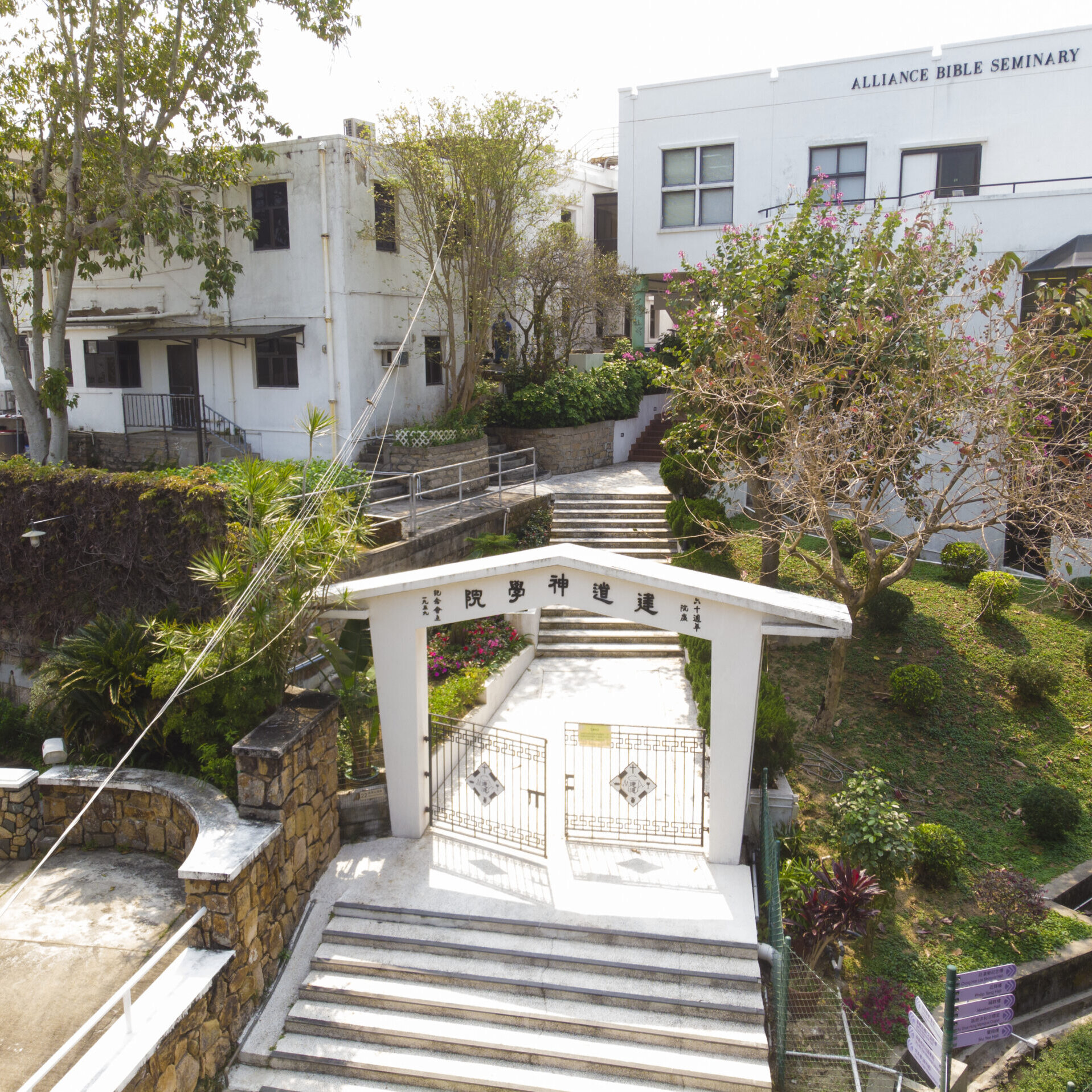一對「佳美腳蹤」──記抗戰時期美國、挪威女宣教士/劉義章
撮要
中國經過鴉片戰爭以來半個多世紀對現代文明從排拒到引進,在踏入二十世紀時,波瀾壯闊的現代化大潮在漫天烽火的內戰和抗戰下澎湃。基督教會從開始就投入中國現代化偉業中。來華宣教士遵行主耶穌基督將福音傳到地極的「大使命」同時,把人類先進文明如醫療衛生、教育文化、科學技術等引入中華。本文介紹何義思和司務道的貢獻。她們在現代中國陷於最危險的抗日戰爭時期與國人共度患難。兩人一南一北,分別在陝南和華南農村為同胞解困舒憂:開設診所和孤兒院等慈惠服務,解無數同胞於倒懸,從而為困厄於黑暗和苦難中的同胞帶來盼望的曙光。中華民族因着宣教士的大愛得以安然度過現代史上最嚴峻的考驗。接下來國人以宣教士的貢獻為基礎而繼續努力,中華大地乃逐漸開出現代文明之花。
ABSTRACT
This article traces the lives and careers of Ruth Howe Hitchcock and Annie Skau Berntsen, missionaries in China from the United States and Norway respectively, during the Sino-Japanese War (1937-1945). Through their heroic deeds and acts, Chinese people under their care were able to survive wartime cruelties and surmount impoverishment. Through clinics, orphanages and similar social services by the missionaries, the sick were healed, the homeless were sheltered, and those under their service saw the ray of hope in life. Through their selfless sacrifices and admirable contribution in introducing modern health care, education, science, technology and others, missionaries played an invaluable role in helping China to advance its civilization.
原載於《建道學刊》37期(2012年1月),頁83-100。
最新文章
新手牧者研究計劃(三):新手牧者的身心靈狀態 / 盧慧儀
2025 年 11 月 19 日
【教牧退休】好好理財 退而不憂 / 林本利
2025 年 10 月 1 日
【教牧退休】生前身後的管理:平安三寶 / 陸文慧
2025 年 10 月 1 日
編輯精選
[電子書]困境與抉擇:「建道研究中心30週年誌慶」跨學科研討會論文集/廖炳堂、倪步曉主編
2025 年 1 月 2 日
從梧州到長洲:建道神學院125年的挑戰與恩典 / 陳智衡
2023 年 10 月 1 日
微小教會的見證/高銘謙
2023 年 6 月 1 日







